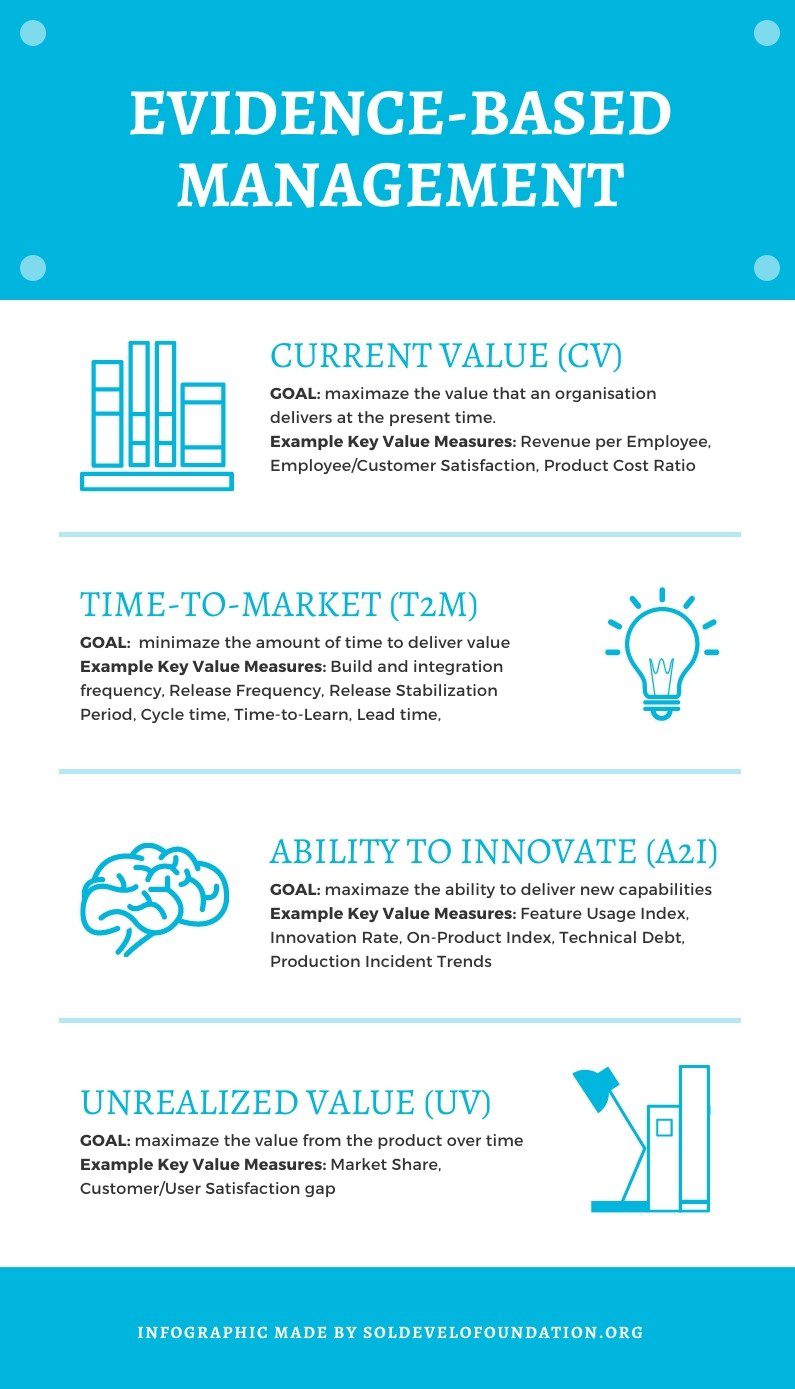For how long have you acknowledged Agile and Scrum methods? If you read this article you have probably used Agile and Scrum for some time and you are looking for new ways to develop them and improve your management. Am I right?
You are doing your best to deliver products at every step but do you remember what was your original goal? How has it happened that you lose or miss about it? Have you ever asked yourself and your team: Are code standards being met?, How frequently developers are integrating code?? Of course, these questions are common, they aren’t also bad but at the same time, they aren’t the best option if you want to improve the value which organization delivers or ability to deliver the value.
When organizations lose sight of their biggest goal they don’t remember that agile is the whole process to an end, not only the end and the result in itself. Now when you are thinking about it you think that you might focus on developing and improving your activities and outputs instead of business values. Soo bad. But with help comes Evidence-based Management which is a solution for your problems and cure for not focusing on the long-term main goal.
What is Evidence-based Management?
“Evidence-based Management is an empirical approach that provides organizations with the ability to measure the value they deliver to customers and the means by which they deliver that value and to use those measures to guide improvements in both.” – Scrum.org
EBM includes 4 Key Values:
- Current Value – the present value of our products and services which we give to our customers
- Time to Market – time when we send our products and services to the market, it shows how fast the company could launch its products
- Ability to Innovate – it shows ability of the company to create new better products which will better answer their customers’ needs
- Unrealized Value – unused value suggests the potential future value of what could be realized if the organization perfectly met the needs of all potential customers.
Each of these 4 Key Values focuses on different aspects of delivering value. Companies without strength abilities in every Key could deliver short-term value but also have problems to sustain it.
Current Value (CV)
The goal of CV is to maximaze the value which products bring to owners, stakeholders and users. Questions which could help the organization to improve CV are:
- How happy are users today?
- Is their happiness is growing?
- How happy are your stakeholders?
- How happy are your investors?
- How much value your product brings to these people today?
- Do you think they like your product?
- Do you think it’s good enough for them?
Time to Market (T2M)
The goal of T2M is to minimaze time which organization needs to bring the product to the market. Questions which could help the organization to improve T2M are:
- How fast can I (and my team) adapt to a new situation?
- How quickly can I learn from new experience and gather knowledge from others’ experience?
- How fast can I deliver new value to customers?
Ability to Innovate (A2I)
The goal of A2I is to maximize the company’s abilities to deliver new capabilities and innovations. Questions which could help the organization to improve this Key Value of Evidence-based Management:
- What prevents the organization from delivering new value?
- What prevents customers/users from taking benefits from this innovations?
Unrealized Value (UV)
The goal of UV for the organization is to maximaze the value that it realizes from the prodcut over time. It suggest potential future value that could be realized if the organization perfectly works and meets all the customer’s requirements. Questions which could help the organization to improve UV:
- Can any additional value be created at this or other markets?
- Is it worth the effort and risk to look again at untapped opportunities?
- Should further investments capture the unrealized value of current projects?

If you want to know more you can look at part two of this article.




